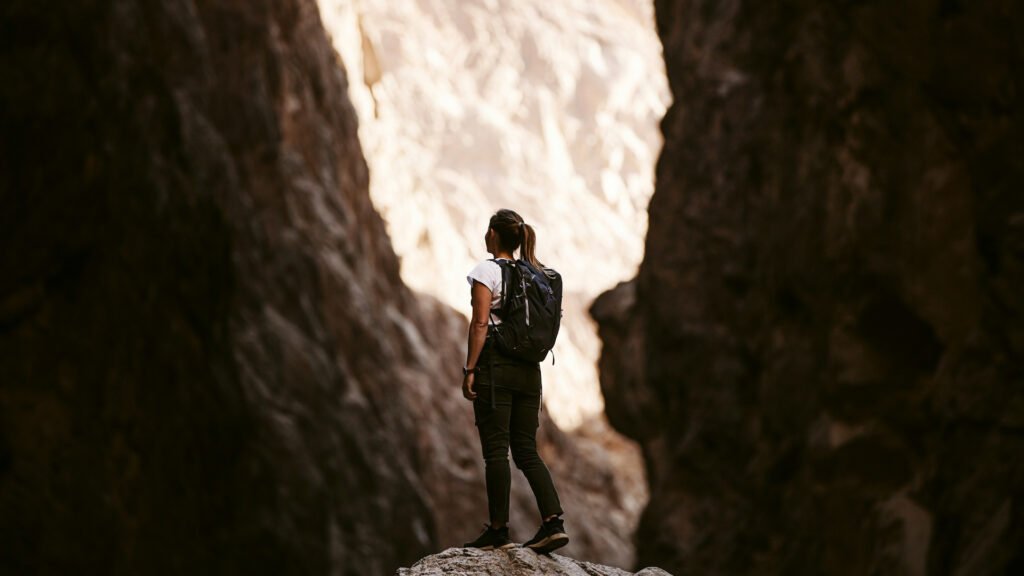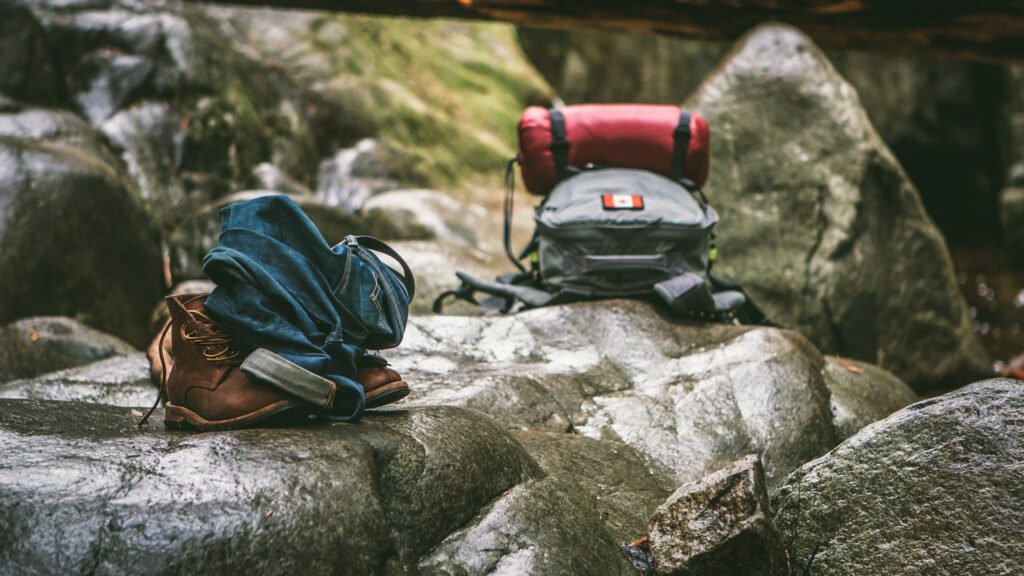Introduction to Outdoor Activities
In recent years, outdoor activities such as hiking, camping, and other forms of recreation have gained significant popularity among various demographic groups. This growing interest reflects a broader societal shift towards embracing nature and its offerings. Hiking, specifically, allows individuals to traverse diverse terrains while enjoying the scenic beauty of landscapes, promoting not only physical fitness but also mental well-being. Camping provides an opportunity for individuals and families alike to immerse themselves in nature, often without the luxuries of modern life, fostering a sense of connection with the environment that many find refreshing and rejuvenating.
As technology continues to permeate every aspect of daily life, the allure of outdoor activities serves as a necessary counterbalance. Many people feel the need to disconnect from devices and the fast-paced rhythm of urban living. Such activities encourage individuals to step outside their comfort zones, breathe in fresh air, and engage fully with their surroundings, which can lead to a more fulfilling and balanced lifestyle. The rise in popularity of outdoor pursuits is often linked to increasing awareness of health and wellness, as enthusiasts seek to improve their overall quality of life.
Moreover, engaging in hiking and camping allows participants to experience the great outdoors firsthand, providing a tactile experience that enhances their appreciation for nature’s beauty. Such experiences can lead to lasting positive effects on one’s mental health and emotional resilience. Outdoor activities are not limited to physical exertion; they also foster social interactions, as participants often explore trails and campsites with friends or family, thereby building community connections and shared memories. This multifaceted approach to outdoor activity contributes to a holistic understanding of health that encompasses physical, mental, and social well-being.
Physical Health Benefits of Hiking
Hiking is not only a recreational activity; it serves as a vigorous form of exercise that yields numerous physical health benefits. Engaging in hiking encourages cardiovascular improvements, enhancing heart health through increased heart rate and circulation. Studies have demonstrated that regular hiking can significantly reduce risks of heart disease and stroke by lowering blood pressure and improving cholesterol levels.
Moreover, hiking contributes to muscle and bone strength. The varied terrain encountered during hikes requires users to navigate inclines and declines, which activates multiple muscle groups, including the legs, core, and even arms if trekking poles are used. This multifaceted exercise promotes muscle toning and increases bone density, which is crucial in preventing osteoporosis, especially among older adults.
Flexibility is another notable benefit tied to hiking. The dynamic movements involved in climbing over rocks or navigating uneven paths encourage a full range of motion, which can enhance overall flexibility. This improvement can be pivotal in reducing injury risks in both hiking and daily life activities.
One of the remarkable aspects of hiking is its efficacy in calorie burning. Depending on various factors, such as the individual’s weight, duration of the hike, and the trail’s steepness, hiking can burn a substantial number of calories. This makes it an excellent exercise for those looking to manage body weight. Research suggests that regular hiking can assist individuals in maintaining a balanced weight, thus contributing to overall fitness levels and general well-being.
In conclusion, the physical health benefits of hiking are extensive, encompassing cardiovascular improvements, enhanced muscle and bone strength, increased flexibility, and effective calorie burning. These elements collectively contribute to better health outcomes and a higher quality of life.
Mental Health Benefits of Camping
Camping offers a myriad of mental health benefits that can significantly enhance overall well-being. Engaging with nature allows individuals to disconnect from the constant demands of modern life, providing a much-needed reprieve from stress. The serene environment found in natural settings encourages relaxation and fosters a sense of peace, as the sights and sounds of the outdoors can be soothing to the mind.
One of the most prominent advantages of camping is its ability to alleviate anxiety. Research indicates that spending time in nature can reduce levels of cortisol, the hormone associated with stress. By immersing oneself in an outdoor environment, campers often experience a reduction in feelings of worry and unease. This natural therapy encourages individuals to be present and mindful, allowing them to engage with their surroundings without the distractions of daily life.
Moreover, camping has been shown to positively impact mood. The act of being outdoors, participating in physical activities such as hiking or fishing, stimulates the release of endorphins—hormones that contribute to feelings of happiness and contentment. The immersive experience of camping fosters social connections, whether through shared activities or informal gatherings around a campfire, which can enhance feelings of belonging and support.
Mindfulness plays a crucial role in the mental health benefits of camping. Being in nature encourages a state of mindfulness, as individuals become more aware of their thoughts and feelings while appreciating the beauty around them. This heightened awareness can lead to greater emotional regulation and self-reflection, ultimately contributing to improved mental health outcomes.
In conclusion, camping serves as an effective method for enhancing mental health by promoting stress reduction, anxiety relief, and an overall improved mood, all of which stem from the tranquility and mindfulness experienced in the great outdoors.
Connection to Nature and Its Impact
Connecting with nature has profound emotional and psychological benefits that contribute significantly to overall well-being. Numerous studies have demonstrated the positive effects of regular outdoor exposure on mental health. Engaging in activities such as hiking, camping, or simply spending time in natural environments can lead to increased feelings of happiness and contentment. This connection with nature has been shown to reduce depressive symptoms, promoting a more positive mood and outlook on life.
The healing properties of nature can be attributed to several factors. First, natural settings often provide a serene and tranquil atmosphere, allowing individuals the opportunity to disconnect from the stresses of modern life. Exposure to greenery and fresh air contributes to mindfulness and enhanced mental clarity, fostering a sense of belonging to something greater than oneself. Immersing oneself in landscapes teeming with flora and fauna triggers a biological response that improves emotional stability and resilience against life’s challenges.
Additionally, research indicates that spending time outdoors can help individuals develop a more profound appreciation for their surroundings, which can cultivate gratitude and overall happiness. By engaging with the natural world, people often experience a shift in perspective that emphasizes the importance of sustainable practices and the interconnectedness of all living beings. This sense of connection can lead to increased environmental awareness and stewardship, further enhancing one’s mental health and emotional well-being.
In conclusion, the emotional and psychological benefits derived from connecting with nature are extensive. Outdoor activities like hiking and camping not only provide opportunities for physical exertion but also facilitate mental rejuvenation. As individuals seek to improve their overall well-being, embracing nature can serve as a powerful ally in their journey towards a happier and more fulfilling life.
Social Benefits of Outdoor Activities
Engaging in outdoor activities such as hiking and camping provides numerous social benefits that can enhance personal relationships and foster community interaction. These activities encourage people to come together, share experiences, and create lasting memories, which can significantly strengthen bonds among family and friends.
One prominent aspect of hiking and camping is the inherent opportunity for social interaction. Participating in group hikes or camping trips allows individuals to connect with others who share a common interest in nature and exploration. This shared experience can lead to deeper conversations, collaboration in navigating challenges, and mutual support, all of which contribute to enhancing interpersonal relationships. The act of working together to set up camp or tackle a hiking trail promotes teamwork and camaraderie, fostering a sense of belonging among participants.
Moreover, outdoor activities can significantly enhance social skills. They provide an informal setting where individuals can engage in conversations, practice active listening, and develop empathy towards others. For those who may struggle with social interactions, such as introverts, the relaxed atmosphere of nature can serve as a comfortable backdrop for forming connections. As participants share their individual hiking experiences or camping stories, they often find common ground, making it easier to forge new friendships.
Additionally, hiking and camping trips can be a catalyst for building community. Groups that frequently organize these outdoor activities cultivate an inclusive environment, where newcomers can easily integrate and feel welcomed. As the group shares activities and challenges, a strong support network often emerges, enhancing the overall experience while encouraging participation in future events.
In summary, the social benefits of outdoor activities extend beyond physical health; they significantly enrich personal relationships and foster a sense of community, making hiking and camping not only enjoyable but also a vital component for cultivating social interactions.
Boosting Creativity and Cognitive Function
Engaging in outdoor activities such as hiking and camping has been shown to positively influence both creativity and cognitive function. Research indicates that immersion in nature can lead to clearer thinking and enhanced problem-solving abilities. A study conducted by the University of Utah revealed that participants who spent several days hiking in natural environments exhibited a significant increase in creative problem-solving skills, outperforming those who remained in urban settings.
This phenomenon can be attributed to the concept of ‘nature therapy,’ which suggests that exposure to natural spaces can rejuvenate the mind and provide cognitive benefits. Nature therapy aims to reduce mental fatigue and restore attention by allowing individuals to disconnect from the stresses of daily life. Such a break from urban environments can create an opportunity for the mind to wander, often leading to the generation of new ideas and innovative solutions.
Furthermore, activities like hiking and camping facilitate a state of mindfulness, where individuals can engage more fully with their surroundings. This heightened sense of awareness fosters improved focus, promoting clarity of thought. Studies have shown that spending time in natural environments can decrease levels of cortisol, the stress hormone, which directly influences cognitive functions such as memory, attention, and decision-making.
Moreover, the physical exercise associated with outdoor adventures boosts overall brain health by promoting increased blood flow and oxygen consumption. Such physiological responses not only enhance mental clarity but also stimulate neurogenesis, the growth of new neurons, further contributing to cognitive resilience over time.
In conclusion, the positive effects of hiking and camping on creativity and cognitive function are well-supported by research. Immersion in nature harnesses the potential for clearer thinking, improved problem-solving skills, and heightened creativity, ultimately enriching one’s mental capacities and overall well-being.
Improving Sleep Quality Through Outdoor Activities
Hiking, camping, and engaging in various outdoor activities can significantly enhance sleep quality. These activities often involve physical exertion, which naturally leads to increased tiredness and promotes deeper sleep. Research indicates that individuals who participate in regular physical activities, particularly those performed outdoors, experience improved sleep patterns and a reduction in insomnia symptoms. This relationship can be partially attributed to the regulation of circadian rhythms influenced by outdoor exposure.
When individuals engage in outdoor activities, they are typically exposed to natural light, which plays a critical role in regulating sleep cycles. Natural light helps to synchronize the body’s internal clock, promoting the production of melatonin, the hormone responsible for sleep. Studies suggest that exposure to sunlight during the day can lead to better sleep quality at night, allowing individuals to fall asleep faster and enjoy a more restorative rest.
Additionally, the calming environment associated with nature contributes to more profound relaxation. Studies have shown that spending time in green spaces or natural settings decreases levels of cortisol, the stress hormone, which further aids sleep quality. The sounds of nature, the fresh air, and the peaceful scenery can induce a state of calmness that is conducive to sleep.
Moreover, hiking or camping often involves adhering to a more natural daily routine, which includes waking up with the sun and sleeping soon after sunset. This adjustment can help the body align its natural rhythms with the environment, fostering healthier sleep habits. Ultimately, engaging in outdoor activities not only promotes physical fitness but serves as a holistic approach to enhancing overall well-being, particularly sleep quality.
Building Resilience and Coping Skills
Engaging in outdoor activities such as hiking and camping presents numerous opportunities for individuals to develop crucial resilience and coping skills. These experiences often involve facing environmental challenges, ranging from unpredictable weather conditions to navigating difficult terrains. When participants encounter these obstacles, they are encouraged to tap into their resourcefulness and adaptability, fostering a sense of independence and self-reliance. As outdoor enthusiasts learn to cope with discomfort and unpredictability, they cultivate emotional strength that transfers to other areas of life.
Hiking, for instance, often requires individuals to push through physical limitations and moments of fatigue. The perseverance needed to complete a challenging trail can provide a profound sense of accomplishment. This growth, grounded in real-life experiences, instills confidence and enhances problem-solving capabilities. During camping trips, participants may also confront unexpected issues, such as equipment failure or adverse weather. Navigating these situations not only sharpens practical skills but reinforces the importance of maintaining composure and adaptability when faced with adversity.
The unpredictable nature of outdoor activities creates an environment where individuals learn to embrace uncertainty. This exposure enables them to manage stress more effectively, as they gain firsthand experience in tackling potential risks. Over time, this ability to handle discomfort becomes a valuable asset in coping with life’s challenges. The lessons learned while hiking or camping encourage a positive mindset, allowing individuals to approach anxiety-provoking situations with greater resilience.
Ultimately, the skills developed during these outdoor adventures contribute significantly to personal growth. By facing and overcoming challenges inherent in nature, individuals are better equipped to handle future obstacles, making hiking and camping essential activities for anyone seeking to enhance their coping strategies and build resilience in the face of life’s uncertainties.
Practical Tips for Getting Started with Hiking and Camping
Embarking on hiking and camping adventures can be both thrilling and rewarding. For beginners, it is essential to understand the foundational aspects of these outdoor activities to ensure a safe and enjoyable experience. First and foremost, selecting appropriate locations is crucial. Beginners should consider starting with well-marked trails that suit their fitness levels. Local parks or nature reserves often provide a variety of trails ranging from easy to moderate, making them ideal for novice hikers. Websites and mobile apps dedicated to outdoor activities can assist in finding suitable hiking locations.
Next, investing in proper gear is vital to enhancing your hiking and camping experience. Essential items for hiking include a reliable pair of hiking boots, suitable clothing that wicks moisture, a refillable water bottle, and a small backpack for carrying necessities. It is advisable to pack lightweight, quick-drying fabrics and to follow the layering principle to maintain comfort in varying weather conditions. For camping, a quality tent, sleeping bag, and portable cooking equipment are key components. Choosing gear designed for the specific climate and terrain can make a significant difference.
Safety should always be a priority when venturing outdoors. Familiarize yourself with basic first aid practices and ensure you carry a small first aid kit on your hikes. Additionally, informing someone about your itinerary is essential. This way, in case of an emergency, they will know your planned route and expected return time. As you prepare for your outdoor excursions, creating a checklist can help ensure you do not forget any crucial items. Remember to consider the leave-no-trace principles to promote environmental sustainability while enjoying the beauty of nature. By following these practical tips, beginners can successfully engage in hiking and camping, fostering a lifelong appreciation for outdoor activities.
Conclusion: Embracing the Benefits of the Outdoors
Throughout this exploration of hiking, camping, and other outdoor activities, it has become evident that these pursuits significantly contribute to overall health and well-being. Engaging in outdoor activities not only promotes physical fitness through cardiovascular exercise and strength building, but also provides essential mental health benefits. Nature has a unique way of reducing stress levels, improving mood, and enhancing cognitive function, making it a vital component of a balanced lifestyle.
Furthermore, spending time outdoors fosters social connections and encourages teamwork, whether it’s through group hikes or community camping trips. The interplay of physical, mental, and social wellness achieved through these experiences can lead to a fulfilling and enriched life. The health benefits are manifold: from the fresh air that invigorates the body to the natural beauty that soothes the mind, outdoor activities provide a holistic approach to self-care.
For those seeking a more active lifestyle, the integration of hiking, camping, and other forms of outdoor recreation into daily routines can be transformative. Making time to connect with nature can be as simple as planning weekly walks in local parks or organizing weekend camping trips with friends and family. As you contemplate your next outdoor adventure, consider the multitude of ways these activities can nurture your body, uplift your spirit, and strengthen your relationships.
As we conclude, we encourage readers to embrace the benefits of the outdoors by incorporating outdoor activities into their lives. The physical, mental, and social advantages of hiking and camping are too significant to overlook. Start planning your next adventure today, and experience first-hand the myriad health benefits that await you in nature.




